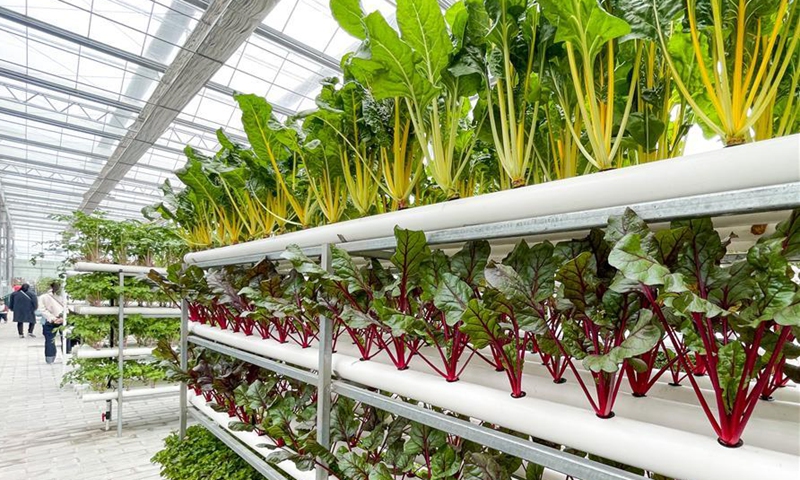
Photo taken on Oct. 27, 2020 shows a hydroponic farm at a modern agricultural park in Tongshan District, Xuzhou, east China's Jiangsu Province. Authorities in Tongshan District have taken steps to optimize the local agricultural sector by combining modern agriculture with urban tourism. Altogether, the district's 300-plus agritourism parks have received some four million visitors in 2019. (Xinhua/Li Bo)
China should improve its supporting policies in the agricultural sector to better connect its domestic policies and WTO rules, Zhu Jing, a deputy to the 13th National People's Congress who is also the dean of the College of Economics and Management under Nanjing Agricultural University, said during this year's two sessions.
As the grace period of China's joining the WTO is ending, China's supporting policies for the agricultural sector are facing rising external pressure involving its compliance with international rules, Zhu said in her proposal for this year's two sessions, which was obtained by the Global Times.
The international rules have obviously restrained the scope of China's policy making and reform in the agricultural sector, and the country needs to upgrade its agricultural policies to ease the "pain point" it is facing to comply with international rules, the proposal said.
First, to address the "pain point", China should be more innovative in making its supporting policies toward the sector comply with international rules as well as being based on the country's national conditions.
Second, the country should strengthen its research and study of the related rules and increase its talent reserves to prepare to participate in the international negotiations and reform of the WTO.
Third, China should actively participate in global negotiations on policy to promote or even lead the reform of the WTO and international rules.
"[China] should also actively participate in agricultural reform under the framework of the WTO and play a leading role in issues such as public reserves for food security, domestic support policies and export restrictions," read her proposal.
Zhu's proposal was echoed by Li Guoxiang, a research fellow at the Chinese Academy of Social Sciences.
"It's necessary for China to improve its supporting rules. There is indeed room for China to have a more accurate supporting system that inspires Chinese farmers and also matches multilateral rules," Li said.
However, during the upcoming new negotiations, or the reform of the WTO, China's national conditions must be taken into consideration to ensure the country's food security, Li said.
"Chinese agricultural products have high costs while their scale is small, so China has been following the policy of having 'minimum purchase prices.' Because under China's national conditions, if we don't follow this policy, the huge fluctuation of agricultural product prices would affect farmers' willingness to keep farming," Li said.


